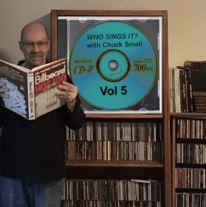I lived in Boston in the 80s and my housemate played bass in a traditional Irish band.
There were a lot of pubs and other venues for that sort of music. So his band was pretty busy. Whenever he couldn’t do a gig, I’d fill in.

I was in a Hardcore Punk band at the time, so Irish music was completely foreign to me.
In my naivete, I tried to do something original with the parts. It’s all about art, man, you know? But that’s not what the gig called for. At some point in a rehearsal, I played the simplest, corniest part I could come up with, thinking it would be funny.
The fiddle player nodded and said, “YES! That’s it!”

That’s how I learned that authenticity is sometimes being creative and true to yourself, and sometimes being respectful and true to the music.
Bass parts in Irish and other traditional Folk music are usually pretty easy. It’s just a matter of playing the same one or two notes per chord and keeping the tempo steady. The other parts — the fiddle, pipes, and other lead instruments — are busy.

They play lots of notes in quick succession and in unison with each other.
Those sad ballads and energetic dance tunes are made for storytelling. These songs pass tales from generation to generation. Some could be about a hard fought battle of yore, or some might be about meeting a fair lass on a windswept moor. Some of these stories might even be true.
Celtic Rock combines those sounds and stories from the British Isles with the Rock instrumentation and ethos that came from America. Tin whistles mingle with electric guitars, bagpipes rub elbows with drum sets, and lilting vocals throw in a scream or two.
Who combined Celtic Folk with Rock first can be debated.
Fairport Convention started in 1967 – but didn’t set out to be Celtic Rock.

They began as Folk Rock inspired by American artists — like The Byrds, Simon and Garfunkel, and especially Bob Dylan — and added in English Folk for a little while.

An Irish band called Horslips started later, in 1970, but deliberately incorporated Irish Folk from their inception.
Fairport Convention released three albums in 1969. Just before the second came out, they finished a show in Birmingham and returned home in a van driven by their tour manager. On the M1 just outside of London, he fell asleep.

In his memoir Beeswing: Losing My Way and Finding My Voice 1967-1975, guitarist Richard Thompson said he noticed the van veering towards a pole and that the driver’s eyes were closed.
He grabbed the steering wheel and avoided the pole, but the change in direction was too sudden and the van rolled over several times. Everyone except guitarist Simon Nichol were ejected from the van. Drummer Martin Lamble and Thompson’s girlfriend Jeannie Franklyn died. The others survived with major injuries.
While recovering, they talked about the band’s future. With stereotypical British stiff upper lips and no real counseling, they carried on, recruiting a new drummer, Dave Mattacks, and fiddle/mandolin player Dave Swarbrick.

It’s this lineup that recorded their fourth album, “Liege & Lief.” It’s the first to include English and Celtic Folk as part of their sound. In fact, many of the tracks are covers of traditional songs.
Afterward, however, most of the band members wanted to return to its original sound. That disagreement, the trauma of the accident, and the loss of their friends, was more stress than they realized.

Singer Sandy Denny and bassist Ashley Hutchings left the band between the album’s recording and its release. Still, “Liege & Lief” is often cited as a Folk Rock landmark .
While Denny pursued a successful solo career (that’s her on Led Zeppelin’s “The Battle Of Evermore”), Hutchings wanted to follow the Celtic Rock path and started a band called Steeleye Span.

Formed that same year with the existing duo of Tim Hart and Maddy Prior, they integrated traditional British and Celtic Folk songs with Rock elements.
With a continually changing lineup of over two dozen musicians, none of whom have been in all iterations, Steeleye Span is still a going concern. They released their 24th album, Est’d 1969, in 2019.
But let’s go back to the beginning. And Horslips.
Three of the members met while working in a Dublin advertising agency. When the agency needed a band for a Harps Lager commercial, the three already looked the part and played instruments.

They hired a keyboardist to round things out, and then decided they liked playing together. Horslips fused traditional Celtic music with Rock, using Irish Folk music as a base.
They incorporated traditional Irish Folk melodies, instruments (such as the fiddle, tin whistle, and uilleann pipes), and themes into their music. They blended these elements with Rock instrumentation, including electric guitars, bass, and drums, creating a unique, dynamic sound.
Uilleann pipes are also known as Irish, or Union Pipes. The difference between these and traditional bagpipes is the player doesn’t need to blow into them.

Instead, a bellows under the player’s arm forces air into the pipes. This keeps the air drier than with mouth blown instruments, which helps the reeds last longer.

If you do an image search for uilleann pipes on Google, you’ll see what they look like.
But fair warning: if you do an image search for uilleann pipes on DuckDuckGo, you get porn. As I found out while writing this at my kitchen table.

Horslips’ debut album, “Happy to Meet – Sorry to Part,” featured a mix of traditional Irish tunes and original compositions and showcased their innovative approach. Their next release, “The Táin,” was a concept album based on the Irish epic “Táin Bó Cúailnge” (The Cattle Raid of Cooley). It further demonstrated their ability to merge storytelling with their distinctive style.
While Fairport Convention and Steeleye Span contributed to the fusion of Folk and Rock, Horslips are generally regarded as the first band to intentionally and prominently integrate traditional Celtic music with Rock:

Thus earning the title of the First Celtic Rock band.
Their pioneering work played a significant role in bringing Irish traditional music to a wider, international audience through the lens of Rock music.
Also in Dublin in 1970, Thin Lizzy formed as a Rock band.

They were locally thought of as a supergroup because singer/bassist Phil Lynott was known for his work in Blues Rock band Skid Row (not the 1980s hair metal band of the same name.) And guitarist Eric Bell had played with Van Morrison in Them.
Though Thin Lizzy were a Rock band and gradually became more Hard Rock, their label released their recording of the traditional Irish song “Whiskey In The Jar” as a single without the band’s knowledge. The group thought it didn’t represent their sound – and it didn’t.

But it was a hit and brought them global attention that helped popularize their later songs “The Boys Are Back In Town” and “Jailbreak.”
Thin Lizzy and other bands, like Big Country from Scotland, played only Rock instruments but used those busy Celtic melodies. And if you tilt your head just so, the guitars sound like bagpipes.
Speaking of Van Morrison, we should consider him as a Celtic Rock artist since his lyricism has a distinct Irish flair. Poetry is a big part of Irish culture, and it shows up in the music.
Such is the case with The Pogues.

Singer Shane MacGowan’s voice didn’t conform to conventional standards of technical perfection — in fact, he was off pitch a lot — but his lyrics were vivid narratives, and his vocal delivery drew listeners into his stories.
His singing was raw and expressive, and he often slurred and elongated syllables to enhance the emotions of the lyrics. His unpredictable phrasing and timing added spontaneity and a sense of drama to his performances.

The Pogues used traditional instruments, including the Irish bouzouki, and Rock gear to mix Irish Folk with Punk.
MacGowan’s singing style blended traditional Irish influences with Punk’s rebellious, untrained energy. This fusion is central to The Pogues’ sound and helps bridge the gap between the two genres.
Meanwhile, Dave King was born in Dublin but moved to London in the 80s. He sang lead for Fastway, a sort of metal supergroup with Motörhead guitarist “Fast” Eddie Clarke and UFO bassist Pete Way.

They had some success but there were frequent lineup changes.
In fact, Way couldn’t get out of his contract with his label and left the band before recording anything. King, however, lasted for four albums. After leaving the band, he bounced around in various groups before moving to Los Angeles and starting Flogging Molly.

They merged Punk with Celtic music, including sea shanties. King’s lyrics talk about drinking, politics, love, and of course, Ireland. They’ve released seven studio albums, as recently as 2022’s Anthem.
Around the same time Flogging Molly was forming in LA, Dropkick Murphys were starting up in Boston.

Perhaps America’s most Irish city. Even their basketball team is called the Celtics.
Like Steeleye Span, Dropkick Murphys haven’t had a consistent lineup.

Only primary songwriter, bassist, and occasional lead singer Ken Casey has been in every version of the band.
With twelve albums to their credit, Dropkick Murphys are probably best known for the single “I’m Shipping Up To Boston.” While the band wrote the music, the lyrics were by, or inspired by, Folk legend Woody Guthrie. Casey was going through Guthrie’s archives, at the family’s invitation, and found a fragment of lyrics. The song tells the story of a sailor who lost his wooden leg and is sailing to Boston to find it.

“I’m Shipping Up To Boston” was used over the opening credits of the 2006 Martin Scorsese film The Departed. That gave it an audience outside Dropkick Murphys’ usual fan base and the song became their biggest hit.
Dropkick Murphys are one of the loudest bands I’ve ever heard live, which is saying something for a lineup that includes banjo and tin whistle. I recommend you see them sometime because it’s a party – but wear ear protection.
I’ve also seen Flogging Molly, who are a lot of fun. I’ve become a big fan of one of their opening acts, Skinny Lister. They mix English pub music with Punk energy.

They’re also a family band with a brother and sister, and the sister’s husband, too. Sometimes the brother and sister’s father shows up on record and in videos.
I’ve seen them several times and will include them in Suggested Listening below.
Here’s a video I took that first time I saw them:
Celtic Rock preserves Celtic culture but also blends traditional sounds with Rock and other genres, creating yet more genres:
Notably, Celtic Punk in North America and Australia, and Celtic Metal in Central Europe and South America.

Perhaps more surprising is the Celtic Rock coming from the Balkans, with bands like Serbia’s Orthodox Celts and Croatia’s Belfast Food, sounds like the original 1970 Celtic Rock.
These new fusion genres helped expose traditional Celtic Folk to audiences outside of the British Isles.
They say everyone’s Irish on St. Patrick’s Day.
With Celtic Rock and its descendants, we can be Irish all year long.
Suggested Listening – Full YouTube Playlist

Crazy Man Michael
Fairport Convention
1969

A Calling-On Song
Steeleye Span
1970

The Battle Of Evermore
Led Zeppelin (with Sandy Denny)
1971

Bím Istigh Ag Ól
Horslips
1972

Whiskey In The Jar
Thin Lizzy
1972

Fields Of Fire
Big Country
1983

Dark Streets Of London
The Pogues
1984

Skye
Runrig
1985

Fisherman’s Blues
The Waterboys
1988

The Widdershins Jig
Skyclad
1990

Cleveland Park
Wolfstone
1992

Seven Deadly Sins
Flogging Molly
2004

I’m Shipping Up To Boston
Dropkick Murphys
2006

Drink Some More
The Real McKenzies
2008

Rolling Over
Skinny Lister
2012

I Wish You The Very Worst
Orthodox Celts
2017
Let the author know that you liked their article with a “Green Thumb” Upvote!






Came here for Larry Bird. Was disappointed.
Have you heard him sing?
https://youtu.be/9g2eU9YGwWQ?si=w4_4TeELvNfgRstj
I’m sorry.
How that first C is pronounced really makes a difference doesn’t it?
Music that I respect, and with familiarity or an enthusiastic crowd could appreciate more.
But I really dig “A Calling-On Song” by Steeleye Span. But I can tell that I probably like it more than anything else they put out. I feel like I need to make a Donald Fagen or Walter Becker joke here, but I just can’t peg one down.
Aja what you did there.
I had a few ideas when I read the subject of today’s column. They were all wrong.
First I thought of the Chieftains, but there’s no “rock” to them, they play traditional Irish folk.
Then I thought of Sinéad O’Connor, again maybe not rock enough, and her most Irish songs are more folk than rock.
Finally I thought of Against Me!, but I guess they’re just punk with a few hints of Irish culture peeking through but not Celtic per se…
So I was 0 for 3, but still pleased with a lot of what you offered V-dog. Great learning and great music (for the most part).
And just like James, I’ll be drinking Irish tonight…
https://youtu.be/0wkZGMktFCw?si=13igKq1f268z1dT7
There’s also Burn Witch Burn, Rodney Anonymous’s band after the Dead Milkmen. I knew they had a Celtic twist to them, but had never actually heard them. They ain’t bad!
https://www.youtube.com/watch?v=POihFP5bKx0
Classic folk rockers and Pogues aside, I don’t listen to too much Celtic rock. I am sure I’ve heard FM and the DKMs at some point, but in the background at a party or at work. I’ll have to check out your selections when I can.
Also what says authenticity better than a French Canadian Celtic punk rendition of a song from Game of Thrones?
https://youtu.be/pF37q3JmYg0?si=p3Qj5Lo12ud8XagL
While Celtic rock is most associated with Irish acts there’s a strong Scottish tradition (as evidenced by Big Country and Runrig) but the Celtic region also extends to cover Wales, the south West extremity of England in Cornwall and even over to the northern coast of France in Brittany. St Patrick is far from the only patron saint of Celtic music.
There’s a lot of similarities but also very distinct cultures within.
Here’s Peat And Diesel, a three piece from the Outer Herbrides off the north West Scottish coast. A 3 piece of guitar, drums and accordion. It’s got Pogues and punk influences but lyrically specific to their island locale.
Don’t worry if you think it’s the wrong video, it gets going around a minute in.
https://youtu.be/zo2zuDxqf6A?feature=shared
While this one is more of a tourist commercial for the stunning scenery.
https://youtu.be/EoLBnk05ris?feature=shared
Other than the possible exception of “Tartan And The Kilts,” “Peat And Diesel” Is the most Scottish band name ever.
I think Bad Haggis needs some consideration.
https://www.youtube.com/watch?v=I-wlVGBrgEc
Good call. They rock.
That’s great! Thanks for this. I recognize some of the streets in Stornoway and other sights from my visit there in 1999. A friend of mine just bought a croft near Callendish. If we ever get over there to see him, we’ll stop by Leeds on the way through.
I’ve never made it over to the Hebrides / Western Isles / Lewis and Harris (I think the plethora of names available is just a ploy to confuse the English).
Definitely on my to do list to get over there. Looks stunning. My sister goes and the photos of some of the beaches are incredible in summer. White sand and clear azure seas, you would think they’re in the Caribbean.
Of course she’s also been there when the rain is torrential so that the beach is barely visible and the wind so strong it was blowing caravans over.
Luskentyre Beach is beautiful and you should definitely go, but bring appropriate beach wear. Like a parka. In June.
The lovely Ms. Virgindog and I just watched an hour’s worth of Peat & Diesel videos. She says they’re now her favorite band.
I was not very “rock knowledgable” in high school but Big Country was my favorite band. As these things happen, I liked their hits and just kept listening.
My particular favorite is their cover of “Prairie Rose”. (I had no idea it was a cover until much later in life.) I am not sure if it counts as Celtic Rock or not.
https://www.youtube.com/watch?v=yXc_t4q_sQc
Boy, that makes the original sound sterile, doesn’t it. Good cover version!
I am not a big fan of Celtic Rock, but I do love the traditional Irish music that you mentioned in the beginning of the article. The musicianship and skill is high level stuff and when they’re going all out as a band, it’s just exhilarating. The group that really knocks me out is the Bothy Band. Also, a friend of mine played flute in a traditional Irish band and seeing them burning on all cylinders live was a total thrill. He also owned a set of Uilleann pipes that looked homemade and were partially made of vacuum cleaner parts.
On another note, my brother Greg owned a Horslips album when I was a kid. I don’t think I ever actually listened to it, but the name of the band just always cracked us up. My brother said they were similar to Jethro Tull. I’m listening to it now, and the flute is definitely very similar to Ian Anderson.
I would watch a reality show featuring the entire rollerboogie family.
That could be fun, but you would want to skip the parts where it’s a good hour of everyone talking over each other.
So if anyone is interested in a band that combines jazz fusion and funk with Celtic and Scottish bagpipe music, I recommend Bad Haggis, the band I posted in an earlier thread. V-dog, I can guarantee you that the bass lines are more interesting than the ones you had to play with the traditional folk group.